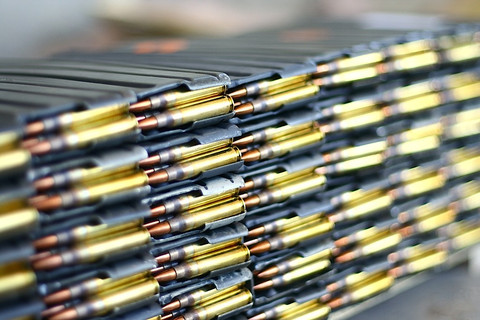The training and maintenance contracts between European companies and foreign armies sustains the conflicts in Yemen and Libya. It is effectively enabled by EU member states because it is hidden from political and judicial oversight.
In early March 2021, the UN panel of experts on Libya released a report documenting hundreds of violations of the UN Security Council arms embargo. The embargo, according to the report, is “completely ineffective.”
Turkey is a serial violator, effectively sustaining an air bridge to send fighters and equipment to Libya. The evidence in the report included 89 flights between Turkey and Libya.
Meanwhile, a maintenance team from Airbus has continued their work on the tarmac in Kayseri, Turkey. They are responsible for ensuring that the military cargo fleet is operational. They are supported by a team in Getafe, Spain. And the pilots flying military airplanes are trained by Airbus too.
In line with the UN embargo, the EU imposes its own sanctions on Libya. It renewed them a few days after the UN report, but did nothing to remedy the failures that have allowed Airbus, a European business, to provide crucial support for Turkey’s unlawful airbridge. Rather than upholding its international responsibilities, the EU’s embargo-renewal is an example of organised irresponsibility.
The perception is that when arms deals are concluded, and the goods are shipped, the responsibility of arms-supplying actors ends.
The reality is that maintenance and training commitments establish long-standing close relationships between European companies and their questionable customers.
Most arms deals include “post-sale services”, such as training, maintenance and knowledge transfers. Often up to 50 percent of the value of a multi-year arms contract is related to post-sale services, which is a major and increasingly important pillar of the arms industry.
These lucrative after-sale contracts drive profits and often leave companies with an invisible stake in controversial conflicts.
Companies like DCI, Dassault, Alakran, Navalgroup, Airbus and OCCAR all profit from ongoing support for armies that openly use their equipment in Yemen and Libya – in spite of export regulations and embargoes being in place.
How is that possible?
To answer that question we analysed the laws and regulations for post-sale arms services in Europe’s five largest arms exporters – Germany, France, Italy, Spain and Belgium.
This investigation is the first comprehensive account of the multi-layered legal framework that governs post-sale services in the arms industry.
It maps the gaps in the regulation of post-sale service and overlays it with an account of the potential liabilities for defence companies and licencing states.
The analysis is based on a review of primary sources, including laws and case-law, secondary sources such as analysis by NGOs and think-tanks, and interviews with over 20 experts, including leading practitioners, arms control advocates and academics.
Our overriding conclusion is that European arms-suppliers are not supporting controversial regimes in violation of European laws, but through them. The laws enable this support even when it flagrantly violates international law and arms embargoes.
Member state structural loopholes
While the EU Common Position on arms exports clearly includes training, maintenance and know-how, the implementation of this agreement into domestic laws changes from member state to member state, each with its own structural loopholes.
In most states, post-sale services are licensed in bulk, without being subject to almost any post-export controls.
In Italy and Spain, many post-sale services can be licensed through a fast-track procedure without a risk assessment for potential abuse by the end-user.
In Belgium, post-sale services are frequently authorised under fairs and exhibitions export-licences, whose export criteria are generally less rigorous.
In Germany, the export of spare parts in a value of up to 25 percent of the main item does not require an additional license.
In France, the repair of a military item is not subject to export control at all.
The findings depict how defence companies are untouchable by law. Despite numerous, overwhelmingly-evidenced allegations of supplying states and companies’ complicity in serious violations of international law, including of a UN embargo, either licensing states or corporations in the ‘post-sale’ sector have yet to come before a court nor have these activities been the subject of parliamentary scrutiny.
The role of arms-control laws in this organised irresponsibility is neither incidental nor sustainable. Member states’ laws and licensing systems structurally enable them to break the arms embargoes that the EU is seeking to enforce.
One German MEP, Hannah Neumann is trying to address the issue – but has instead affirmed the powerlessness of the EU Parliament.
She wrote letters to OCCAR and Airbus, in an attempt to clarify accountability for their ongoing support of Turkey and Saudi Arabia. So far, her letters have received no response.
If the EU member states that licence these ongoing arms exports were truly committed to ending the violence in Libya, then Turkey’s military cargo planes would be grounded within weeks.
European states and their companies are involved in intensive and long-term servicing relations that create dependencies on European actors and render them participants in abusive conflicts such as Yemen and Libya.
It exposes them to serious legal and political risks for such military assistance.
By STEFANO TREVISAN
Source: EU Observer




